The Best Films of the Year So Far (* According to Metacritic, According to Me): Part II
The top of the charts offers another wide range of experiences, though three films, including the best of the best, deal sympathetically with women in high-stress situations.
Last week, I kicked off my annual catch-up feature with five acclaimed films I missed in 2023, including one Spanish drama about a rural community bracing for the possible incursion of solar panels on its land (Alcarràs) and another Spanish drama about a rural community bracing for the possible incursion of windmill farms on its land (The Beasts). (Both are very good and could not really be confused for each other, but it’s fascinating to see green energy initiatives tearing the Spanish countryside apart.) Of the five films I looked at last week, only The Eternal Memory, a beautiful Chilean documentary about a couple dealing with the day-to-day, year-to-year ravages of Alzheimer’s, rang the bell. This week, we get another host of contenders in the Top Five 2023 films I haven’t seen, according to the tabulators at Metacritic.
Three notes before getting started: 1. As with last week, the Metacritic redesign mucked up its Best Movies This Year page, so I will only be indicating the Metacritic score here, not the current ranking. 2. I neglected to include a category, “Sample praise,” that I’ll include this time. We should know who’s out there praising these movies! 3. I’m considering dropping the Metacritic hook for future catch-up columns, not because of the redesign (though that obviously hurts), but because of the nature of aggregation, which tends to honor consensus more than passion. Rotten Tomatoes is obviously worse than Metacritic in this regard, since 10 out of 10 critics can agree that a movie was “pretty good” and it scores a 100. But it seems to me that the best films of any given year always provoke at least small pockets of dissent that drive scores down.
All that said, I got to watch five more very good movies this week. So let’s get started with #5-#1:
5. Blue Jean (dir. Georgia Oakley)
Metacritic score: 87.
How to watch: The usual rental services.
List-worthy? No.
Premise: In 1988 England, as Margaret Thatcher’s conservative government moves to pass legal restrictions on the gay and lesbian community, Jean (Rosy McEwen), a PE teacher at a secondary school, keeps her head down and stays closeted, much to the frustration of her butch girlfriend (Kerrie Hayes). But when a new queer student (Lucy Halliday) becomes a target for bullies, she risks her job to intervene.
Sample praise: “Blue Jean” looks fantastic, and the period details are pitch perfect, from the moppish 1980s haircuts to the New Order music choices, all the way down to the neon gender symbols at the lesbian bar. Yet the film’s most impressive quality is its nuanced understanding of how political circumstances create different spheres of life. — Teo Bugbee, The New York Times
Thoughts: A rock solid drama, if a bit predictable in how it plays out. What resonates here, beyond the specter of conservative repression that still hangs over public spaces here and abroad, is how Jean suffers from having to navigate two worlds that she can never quite satisfy. She has to play the role of a straight teacher at school and does her best to boost her new student, who takes a liking to netball and tries to work her way onto a team that’s suspicious of her and of Jean. If Jean seems too vigorous in her defense of the girl, then questions will get raised that could threaten her job. At the same time, she cannot commit fully to her love life outside school and her girlfriend gets understandably tired of compromising and keeping a low profile. It’s a comprehensive misery for Jean to live her life in the shadows, and writer-director Georgia Oakley, in her debut feature, makes every waking moment a discomfort, relieved only by the time Jean gets to enjoy behind closed doors.
4. Our Father, the Devil (dir. Ellie Foumbi)
Metacritic score: 87.
How to watch: In theaters (theoretically). On video Oct. 10.
List-worthy?: Not quite.
Premise: At a nursing home in an idyllic corner of the south of France, Marie (Bebetida Sadjo), a Guinean refugee, has quietly labored to earn the position of head chef, inheriting not only the job but a mountainside cottage from her aging mentor (Martine Amisse). But when she recognizes Father Patrick (Souléymane Sy Savané), the new priest, as the warlord responsible for killing her family back home, she takes drastic action to seek justice.
Sample praise: “In the assured hands of the writer-director Ellie Foumbi, Marie’s unraveling yields not only an absorbing psychological thriller, but a profound meditation on the ethics of immigration.”— Beatrice Loayza, The New York Times
Thoughts: The premise for Our Father, the Devil sounds like a typical gnarly revenge thriller, not unlike Denis Villeneuve’s unsavory Prisoners, where two girls go missing and a father takes the law into his own hands. And indeed, Marie does manage to clock Father Patrick in the head, drag him back to her cottage and, let’s say, vigorously interrogate him. Yet this French film is more about psychological trauma than visceral impact, and there’s plenty of ambiguity in what becomes, for both of them, a pursuit for the truth. It’s also not content merely to anchor the conflict between Marie and Father Patrick to past trials in Africa, but to reflect on their life in France and their common status as immigrants whose experiences are not fully understood. The film teases the question of whether Marie is, in fact, wrong about Father Patrick’s identity, but it’s surprising the degree to which this extremely important question isn’t necessarily the crux of the story. (Another assured debut, too, like Blue Jean above. The film picked up a Best Feature nomination at the Independent Spirit Awards.)
3. Ear for Eye (dir. Debbie Tucker Green)
Metacritic score: 88.
How to watch: Criterion Channel.
List-worthy?: No.
Premise: Adapting her own experimental play, first staged at London’s Royal Court in 2018, Debbie Tucker Green’s black-and-white, nakedly theatrical feature unfolds over three chapters, each of which addresses the historical and contemporary injustices visited upon Black people in Britain and America.
Thoughts: There’s no getting around the fact that Ear for Eye is a filmed play, though Tucker Green does her level best to leverage the tools of cinema to her advantage, whether through the rhythmic pop of the editing, which reflects the layered stylization of the writing, or through tricks of lighting and split-screens. The three chapters each have their own flavor, with the second serving as a chilling one-act between a college student (Lashana Lynch) and her professor over a school shooting perpetrated by a white man that left multiple Black teens dead. But Tucker Green’s willingness to square up to hot-button issues reaches a particularly inspired level later on, when she rolls out a multi-screen tableaux of white actors reciting Jim Crow laws with attendant menace. It takes some time to get accustomed to Ear for Eye’s blunt, confrontational mode, and I confess not to jibe with it as much as I’d hoped. But Tucker Green’s iridescent candor convinces you that she’s coming into the cultural discussion with the right amount of heat.
2. 32 Sounds (dir. Sam Green)
Metacritic score: 88.
How to watch: In theaters, with some “live” screenings.
List-worthy?: Honorable mention.
Premise: With a major assist from JD Samson, who contributes original music and foley (and participates on camera and in the live show), director Sam Green unpacks 32 different sounds, each an example of how sound contributes to our understanding of art and how we perceive the everyday world.
Sample praise: “Full to bursting with humor, emotion and curiosity, 32 Sounds is a uniquely mind-expanding plunge into a dimension of the human experience so many of us take for granted, a rare and rewarding sonic journey with the potential to enrich our lives.” — Peter Debruge, Variety
Thoughts: Hands down the most neat-o movie of 2023. There’s a real curiosity and joy with which Green, his collaborators, and his subjects explore sound from multiple dimensions—the title and general framework was inspired by 32 Short Films About Glenn Gould—to make the audience aware of this oft-stealthy yet powerful force on our perception. At times, it feels like Green is trying to make a much more engaging version of the boring instructional films we might have encountered in science class about how the ears work, and that’s not the worst reason to make a movie. Yet there’s more to think about here, too, particularly when he focuses on the subtle beauty of an isolated sound: He asks a nature sound archivist for her favorite sound and she produces the heartbreaking mating call of a male bird whose mate is already lost. Another recordist in nature also offers thrilling sounds of the activity happening just under the surface of a small river, with the chittering of insects and the swirl of the currents. One note for people wanting to check 32 Sounds out: Either see it in a theater with excellent sound (note the live shows in the link above; it’s been touring for a while) or wear headphones. Trust me on this.
1. Our Body (dir. Claire Simon)
Metacritic score: 95.
How to watch: In theaters.
List-worthy?: In contention.
Premise: Over nearly three hours, director Claire Simon observes the doctors and patients at a gynecological ward in a Paris hospital, where women are admitted for a range of health care services. The camera peaks in on consultations, surgeries and lab work, and in one scene, Simon herself receives some difficult news.
Sample praise: “It seeks to demystify the bodies we see, normalize the act of seeking medical intervention and remind us of the great swath of humanity — of different ages, colors, genders, shapes and sizes — passing every day through this ward and others like it.” — Justin Chang, Los Angeles Times
Thoughts: Our Body has drawn a lot of comparisons to Frederick Wiseman’s documentaries, which often examine institutions at great length through a rigorous observational style. (Wiseman himself made Hospital, albeit at half the length.) That’s a fine shorthand to describe Simon’s film, though Our Body has an undeniable personal feel even before a point two-thirds of the way in when she processes a painful diagnosis. The film would make an excellent companion piece to one of my other favorites from this year, De Humani Corporis Fabrica, and while it’s not nearly as visceral and experiential, it benefits from the same intimacy and willingness to engage in difficult moments, when patients are at their most vulnerable and doctors work steadily to give them the best care possible. Women’s bodies are often a political battleground, and Simon does well to dispel the ugliest assumptions about what gynecological care entails, simply by using her time to show the full range of services. A sequence on childbirth where Simon follows a midwife from a routine birth to an emergency C-section, then to a mother tearfully recalling a natural birth that turned into a life-threatening situation, is the film at its most powerful. But there’s just as much fascination to be found in conversations about trans care or a trip to a lab where technicians work on fertilization. A brilliant, prismatic piece of work.




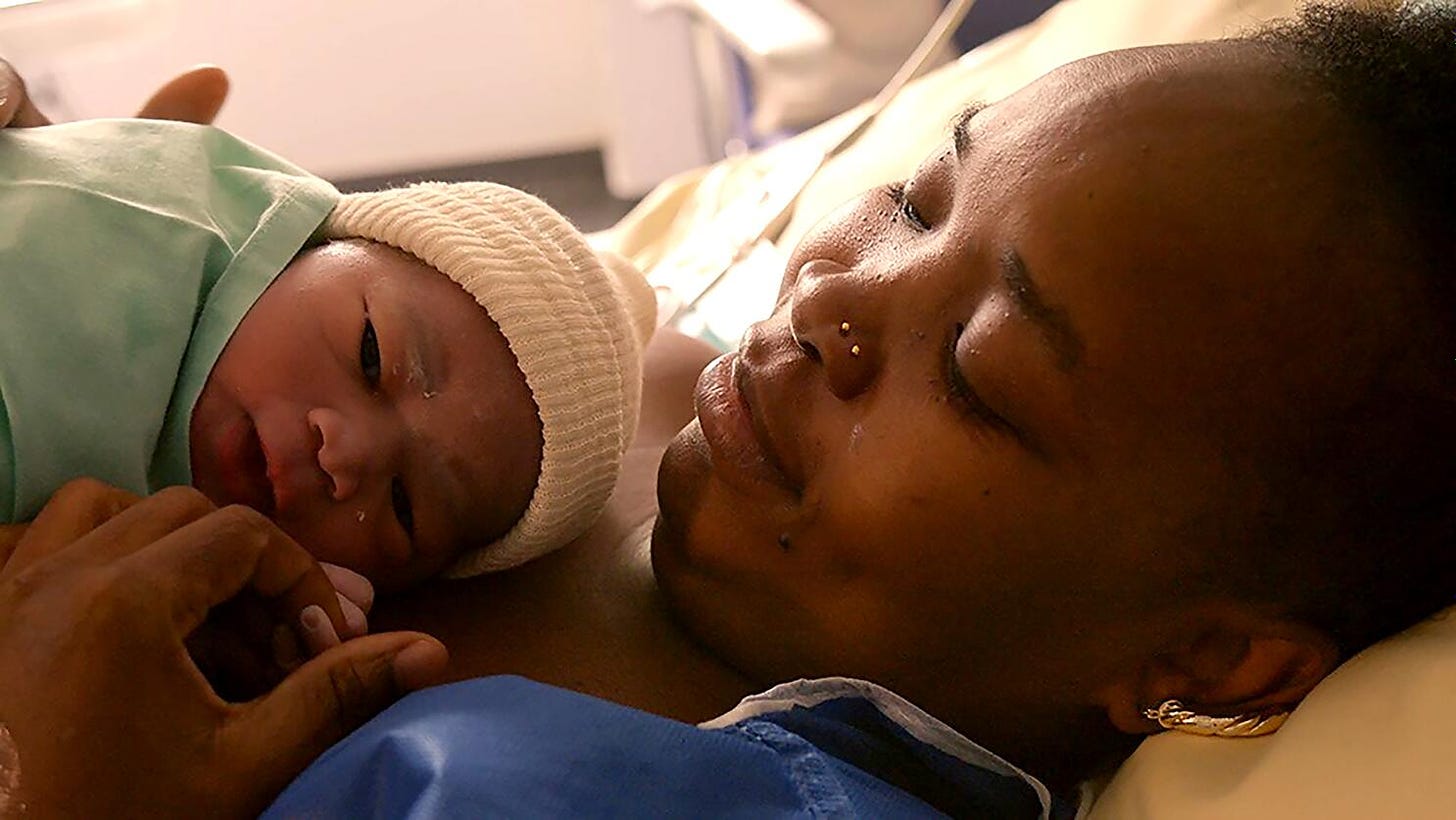
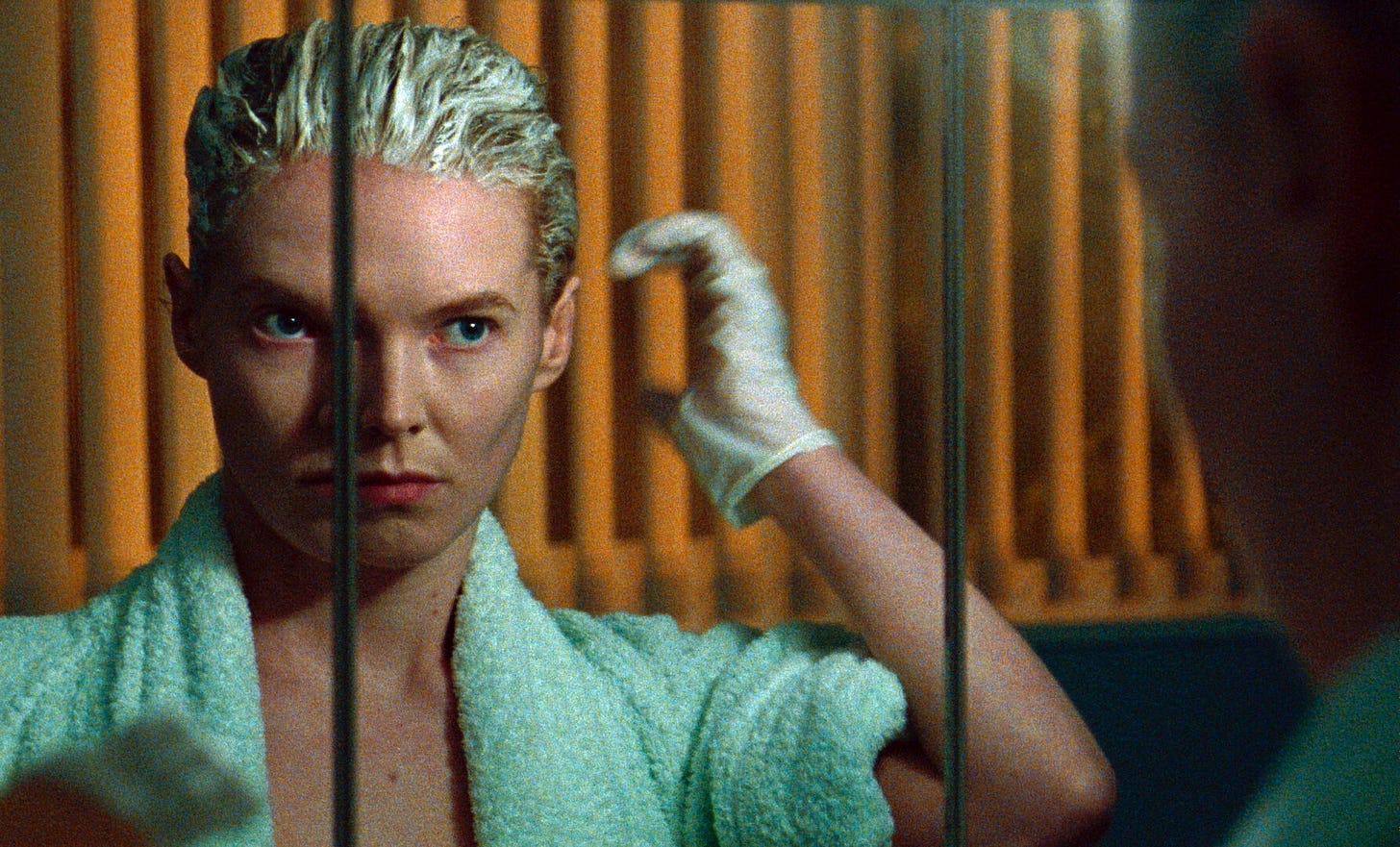
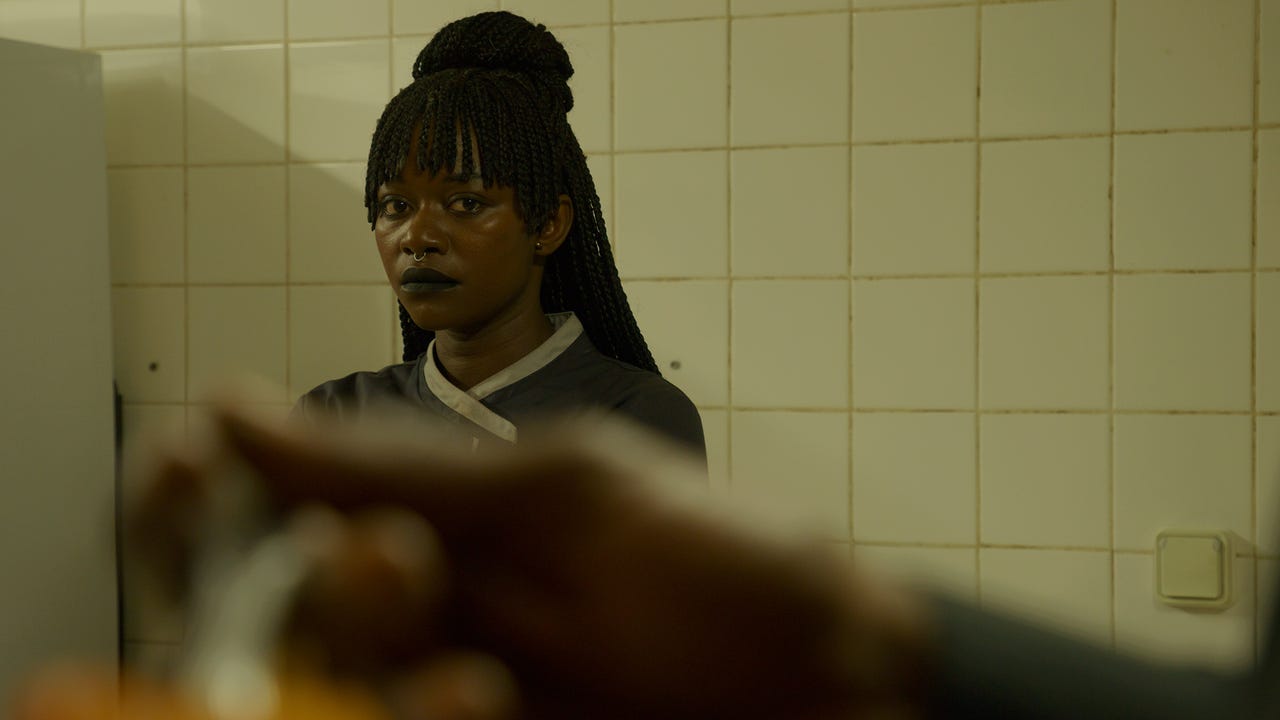
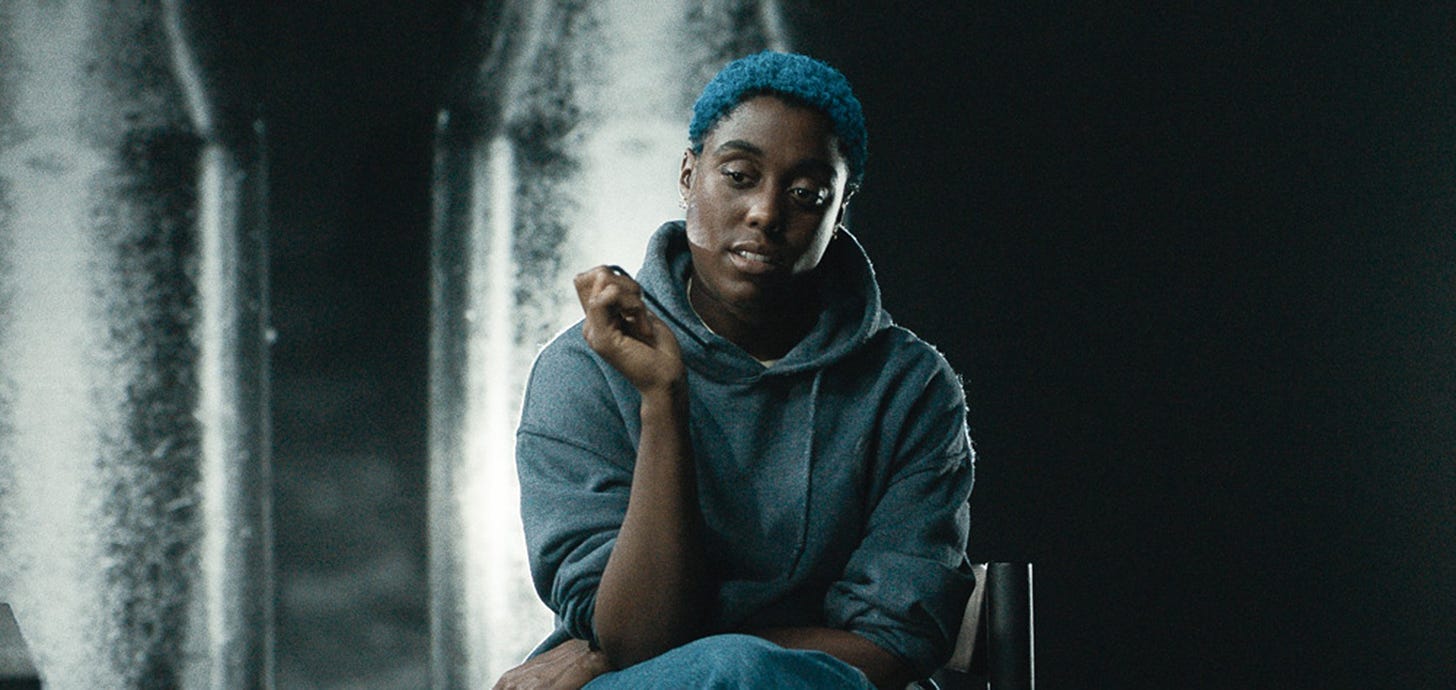
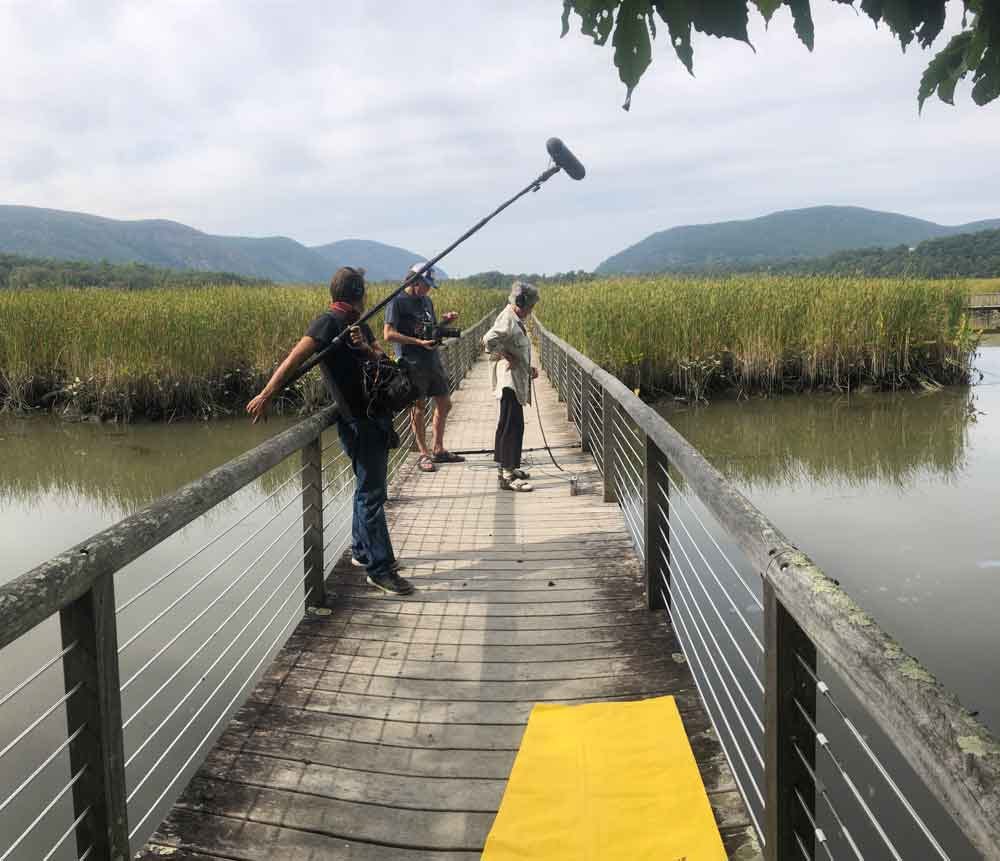
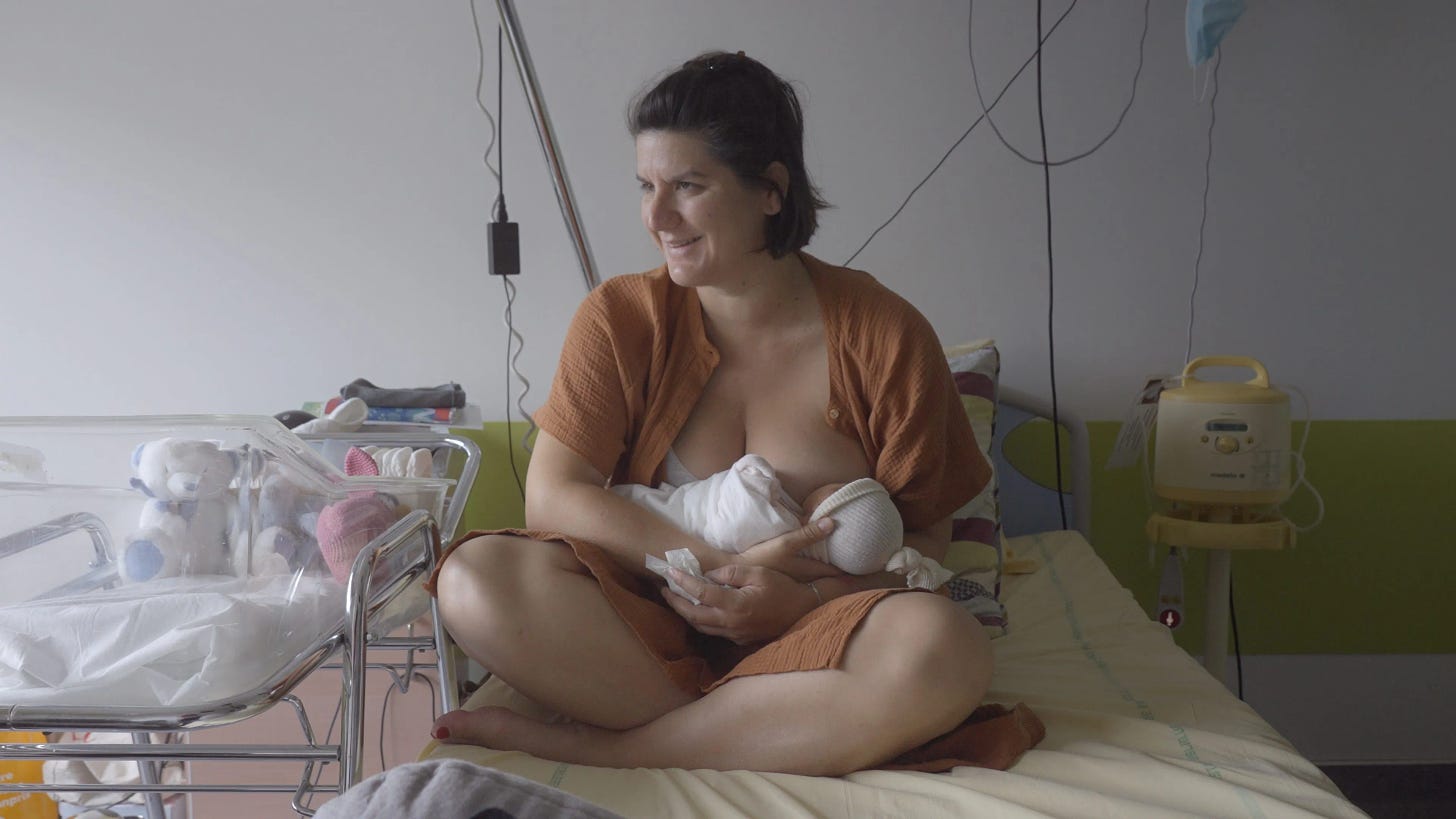
Did I thank you for this feature after part 1? If not, I thank you now.
As happens, I'm getting older and losing touch with pop culture, and my engagement with Film Discourse is pretty minimal compared to what it was in my youth. For years, all I've heard is, "All they make anymore is Marvel movies and then a couple of biopics for Oscar time." And I saw how much everyone flipped for Barbenheimer---"HEY EVERYBODY THERE ARE *TWO* MOVIES", as if it didn't used to be the norm for a handful of interesting movies to come out every week. I guess to some degree I bought the hype that there literally weren't any old-fashioned movies anymore. So it's good to hear that this is a bit of an exaggeration.
I love the Metacritic aspect (and mourn the old design) so i would love if you kept it even if i understand why you'd wanna drop it. BLUE JEAN - as much as I think it is the best film of the year at the moment - hit for me at a very specific point in time when the news was happening, but I think i also tend to generally be sort of forgiving of lapses in logic, plot predictability, etc.